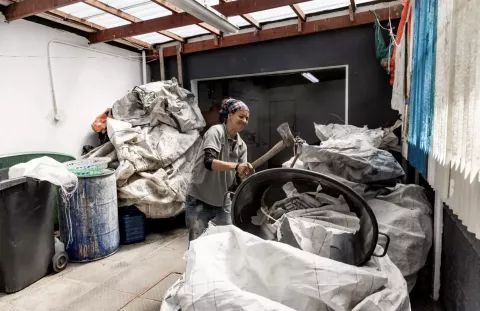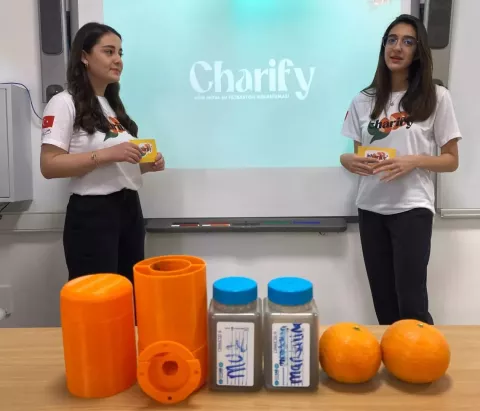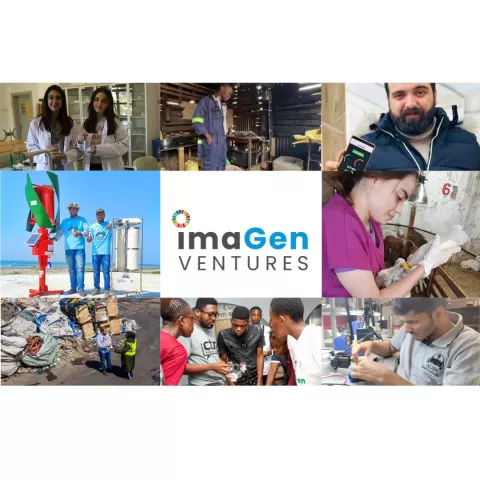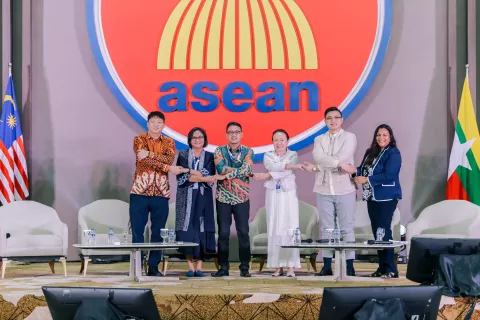Championing Ghana’s next generations of change-makers
Youth entrepreneurs in Ghana are a largely untapped resource. How do we change this?
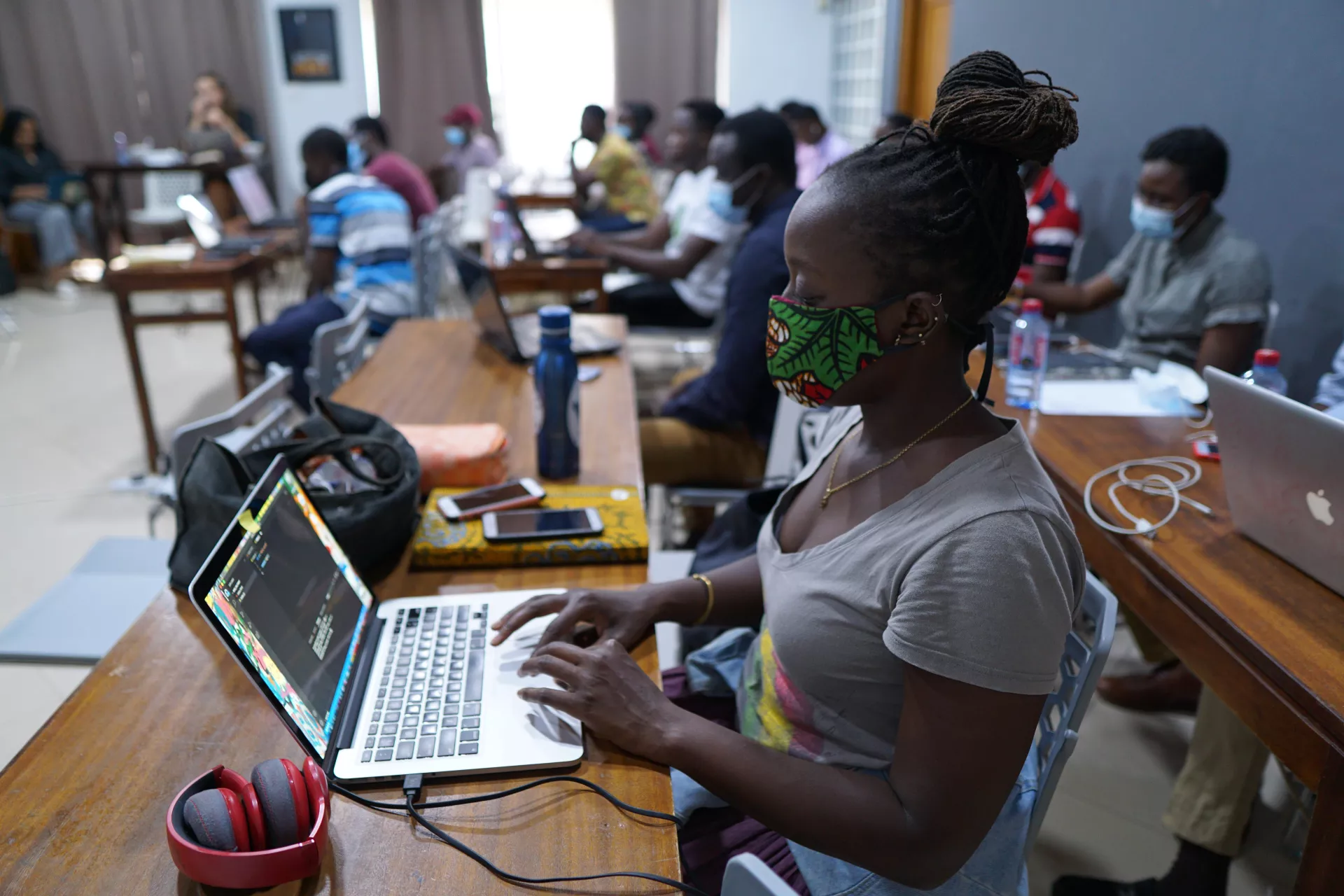
Technology-driven, social impact businesses are on the rise in Ghana. Investing in such businesses, especially those led by youth entrepreneurs, has the potential to improve young people’s lives, but this opportunity remains largely untapped. Youth represent one third of Ghana’s 30 million people. Investing in this generation now will help bring potentially transformative solutions to young people and the marketplace, while also strengthening the national ecosystem that drives social impact.
To capitalize on this opportunity, UNICEF established the StartUp Lab, a co-creation space and accelerator located at UNICEF’s offices in Accra, Ghana. It actively engages early-stage start-ups to develop innovative, open-source, and market-driven solutions that help address complex problems affecting the well-being of young people and adolescents. By engaging Ghanaian entrepreneurs as agents of social change, UNICEF ensures that the GenU vision of creating opportunities for and with young people is fully realized.
The StartUp Lab launched in 2019 with 11 companies. By 2021 it had doubled in size and is now supporting 22 companies – 40 per cent of which are female co-founded. There is a strong focus on finding solutions for better secondary education and school-to-work transitions among the participating companies. For example, an online centre for remote tutoring by Wired Tutor; a marketplace platform that helps youth assess skill levels, provide resources to upskill and match them to job opportunities by TalentsinAfrica. Also a suite of quizzes built on top of Google Forms by Scribble Works; an AI engine to identify learners' strengths and weaknesses by eCampus; and a portable, scalable STEM laboratory set designed to fit in a student’s bag by DEXT. These few companies alone have already reached 100,000 young people with solutions that promote upskilling, remote learning, encourage entrepreneurship and connect students to jobs.
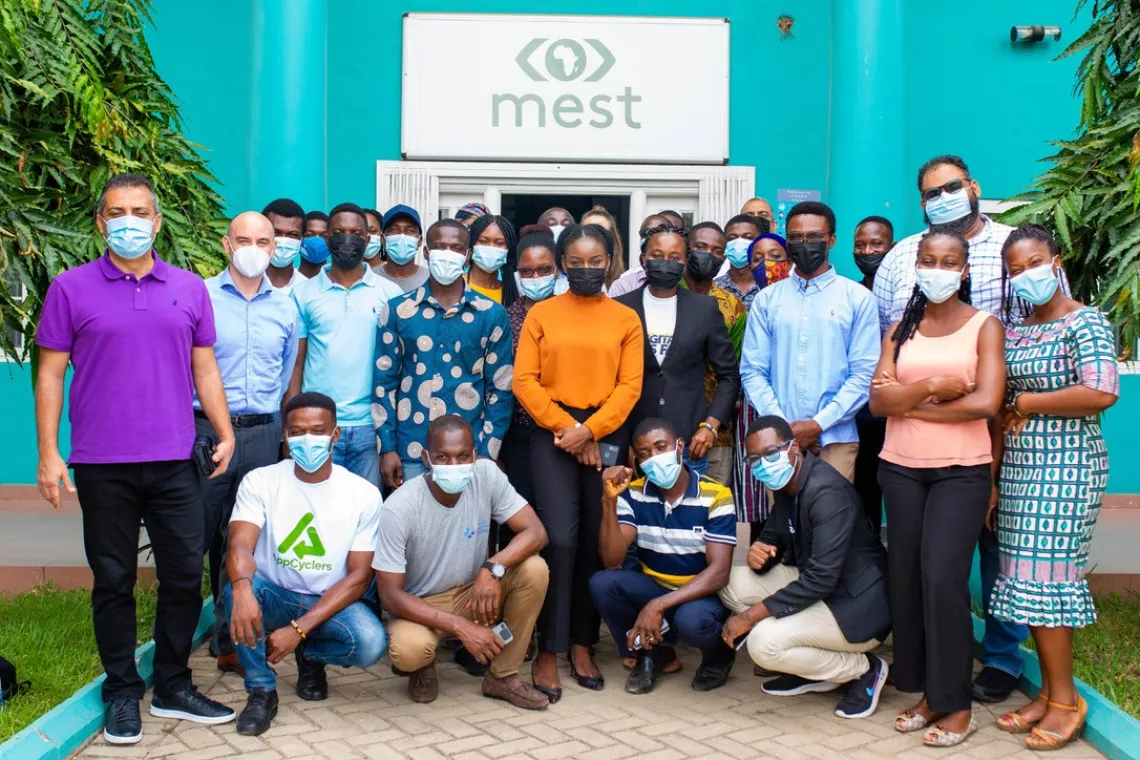
For example DEXT’s science set, which offers thirty lessons in areas such as electronics, basic robotics, green energy and vertical farming, is used in 600 schools internationally, with UNICEF in Ghana procuring over 300 sets to evaluate their impact. The other participating companies address challenges in health, water, sanitation and hygiene (WASH), cybersecurity or emergency interventions delivery.
The programme lasts six months with an intensive curriculum delivered onsite and offsite across six thematic areas, including diligence, product, unit economics and investor relations. All training is managed by Meltwater Entrepreneurial School of Technology (MEST Africa), the programme’s implementing partner. Each start-up has access to UNICEF’s technical experts, UN system network, individual mentoring, as well as capacity building sessions. The StartUp Lab also supports participants to apply for the UNICEF Innovation Fund, to launch a Digital Public Good, or to support initiatives such as Giga or GenU.
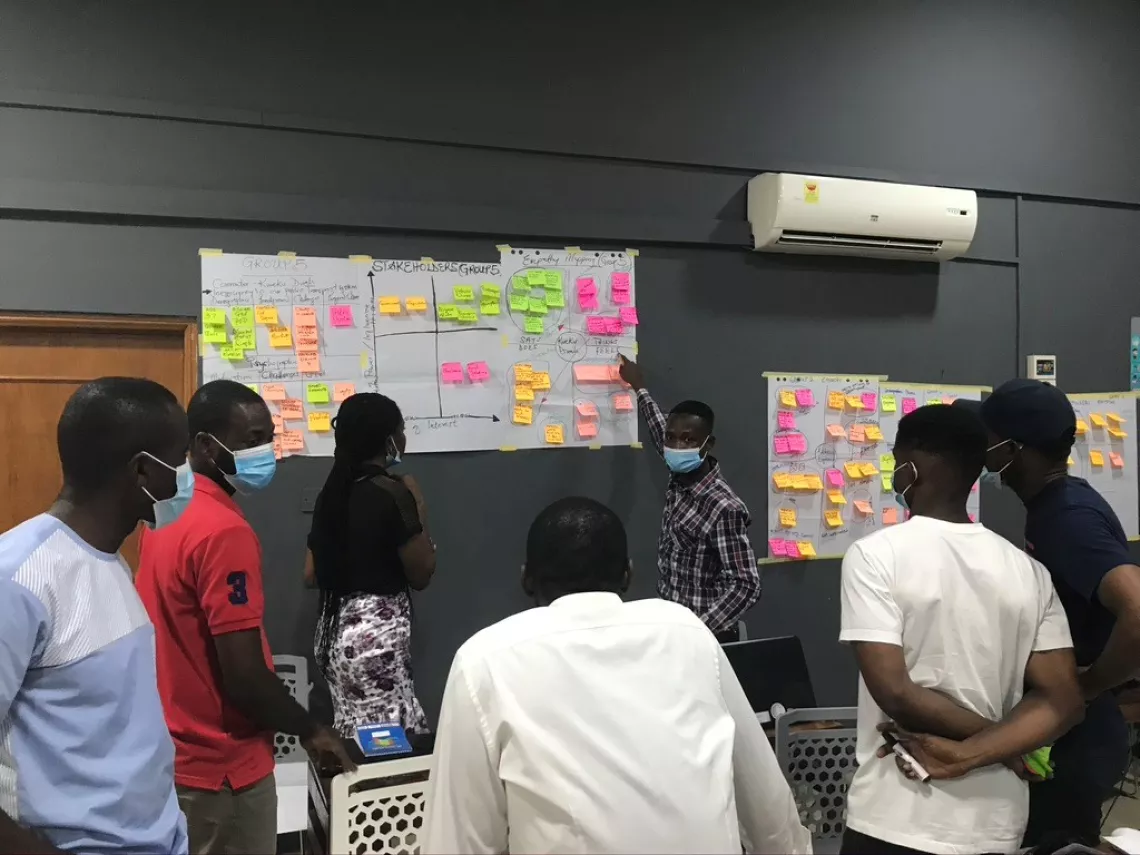
The UNICEF StartUp Lab provides a unique service by integrating business incubation and wide-reaching technical expertise and systems knowledge in the social sector, amplified by the reach of UNICEF’s partnerships. Interaction with UNICEF ensures that the next generation of impact-focused businesses are aligned with existing development needs and gains access to networks that can support their work. By building linkages between national entrepreneurship ecosystem, headquarters level support mechanisms and country office level expertise, the StartUp Lab in Ghana attempts to refine a holistic model of UNICEF’s entrepreneurship support that can be replicated across other national and regional offices.

